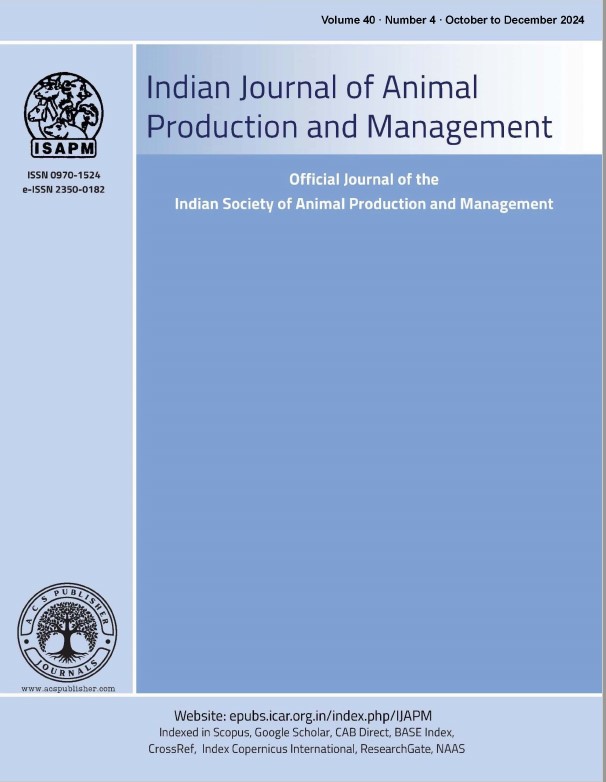PERFORMANCE OF BROILER FED ON VEGETABLE WASTES SUPPLEMETED DIETS*
Keywords:
Broiler, Vegetable wastes, cost of feedingAbstract
An experiment was conducted for six weeks with two hundred forty day-old commercial broiler chicks of uniform body weight to study the growth performance fed on vegetable wastes supplemented diets. The chicks were divided randomly in to four experimental groups, viz. C, T1, T2 and T3 consisting of 60 chicks in each group. The control diet was prepared by using conventional feed ingredients. The starter and finisher diets for T1, T2 and T3 groups were prepared by supplementing the control diet with 50 per cent cabbage waste meal, 50 per cent cauliflower waste meal, and 50 per cent mixed (1:1) cabbage and cauliflower waste meal respectively. The mean body weight of birds were found to be 1722.33 ± 12.86, 1642.30 ± 19.54, 1644.33 ± 6.43 and 1584.33 ± 6.38 g for C, T1, T2 and T3 groups respectively. The average body weight gain of birds was found to be higher (P<0.01) in the control group. There was no significant difference in respect of body weight gain of birds among the experimental groups. The average total feed consumption of birds was found to be significantly higher (P<0.01) in the control group. The average total feed consumption was not found to differ significantly among the birds of T1, T2 and T3 groups. The feed conversion ratio was found to be highest in the birds of T2 group (1.82). The feed conversion ratio in birds of the four experimental groups was not found to differ significantly (P>0.05). The total protein consumption was found to be highly significant (P<0.01) between control and the three experimental groups. However, no significant (P>0.05) difference could be seen in the average total protein efficiency ratio among the experimental groups. The cost of feeding per kg weight gain of birds on the basis of feed consumption was found to be cheaper in the three experimental groups of T1, T2 and T3 than the control (C) group.

